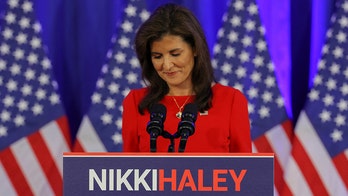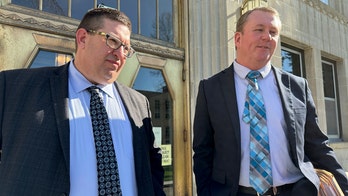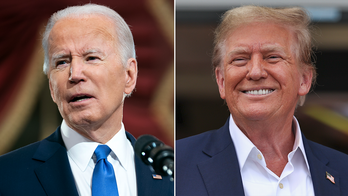The political wisdom of pushing off the least appealing elements of President Obama’s national health-care law until after the 2012 election was once seen as a savvy, if cynical, gambit.
But on the one-year anniversary of the passage of the law, the strategy is looking less certain.
President Obama and congressional Democrats frontloaded the legislation with sweeteners like free money for senior citizens’ drug bills and allowing young adults to stay on their parents’ policies until the age of 26.
The thinking, widely seen as shrewd a year ago, was that opposition to the controversial law passed by controversial means would soften once voters saw there was little to fear from a plan better known for rationing care, increasing taxes and cutting Medicare. Thus lulled, formerly skeptical independents would give Obama a second term after his long-awaited “hard pivot” to jobs and the economy.
As Obama’s re-election campaign gets underway, though, the wisdom of stalling all of the most controversial and expensive parts of the plan looks dubious for a few reasons.
First, the Obama political team has struggled with that “hard pivot” thing. While the economy has been better, since it’s still shaky, the president hasn’t been able to lay claim to the progress.
Obama’s post-midterm jobs plan for “Winning the Future” with new spending on railroads and green energy programs was doomed in the newly divided and debt-conscious Congress. But the PR push was still seen as a campaign showcase for Obama’s new economic talking points.
But even when the Air Force hasn’t been bombing North African dictatorships and Japanese nuclear plants aren’t melting down, the national discussion has been more about the pressing issues of funding the government and the looming limit on federal borrowing power than anything Obama has said about jobs.
Quick question: What was the purpose of Obama’s five-day trip to Latin America? The president went to talk about trade opportunities with Brazil, Chile and El Salvador, but ended up talking about Libya. Even if the U.S. wasn’t wading into a third war while Obama was on the trip, the headlines still wouldn’t have been about pan-hemispheric trade. The first lady’s wardrobe would have surely gotten as many write-ups as Obama’s trade talk.
The false assumption here is one common to most presidential administrations. The White House has the bully pulpit in the world, but administrations consistently overestimate their ability to “drive the discussion.” Whether it is George W. Bush talking about Social Security reform or Obama talking about solar panels, the American public and the news media that serve them have tremendous capacity for tuning out presidential prerogatives.
Incumbent presidents have many advantages at election time, but the central disadvantage is that they can’t run on promises and must run on their records.
The second problem with the delayed implementation of the Obama health care law is the uncertainty it has sewn.
While polls suggest that some of the deep anger over the law has abated, there is no sign that the nation is sold on the plan. At best, the nation is as divided today as to the merits of the plan as it was a year ago today and many polls suggest that support for the plan has actually edged downward as months have gone by.
Part of that arises from the fact that many voters still haven’t the foggiest idea what is in this massive, multi-trillion law that the country spent 14 months squabbling about. That polls regularly find about 20 percent of Americans undecided about the law suggests the measure remains in large part a political abstraction.
While the administration planned to woo voters with freebies and a barrage of ads starring Andy Griffith, the law is still an unknown quantity. The goodies were simply not good enough.
Meanwhile, the Obama administration is fighting a three-front war to just keep implantation on track.
There is a federal court challenge that seems to have a pretty reasonable shot of upending the whole thing. And if that doesn’t happen, there’s a chance that Congress could gut key provisions of the plan, like the unpopular requirement that all Americans buy private insurance or be enrolled in an approved government plan. At the same time, states are exploiting legal and practical uncertainties surrounding the law to try to wriggle free of its most expensive obligations.
A year after passage, the law is still two years away from full implementation. And there is good reason to believe that it will not arrive intact, if it arrives at all. By delaying the less popular parts of the plan to avoid political backlash, Democrats also made it seem like an uncertainty.
While Democratic pollsters like to point out that Medicaid and other welfare programs became more popular in time, the Obama law lacks the kind of clarity that allows voters to come around. With Medicaid, Americans knew they were subsidizing health care for poor people. This law, meanwhile, looks like a Rube Goldberg contraction from which no obvious benefit will issue.
The third, and most possibly damaging miscalculation in delaying implementation of the law, was the false belief that the hugeness of the accomplishment would be enough to keep the president’s political base mollified through 2012.
The trust gap between Obama and the liberal activists who fueled his rise grows deeper and deeper. His assault on Libya was the last straw for some. For others it was his agreement to extend current tax rates for the high-income earners. But the sense on the left that Obama has sold them out has been growing for some time.
A substantial chunk of those who don’t like the president’s health-care law are liberals who think he caved in to insurance companies and drug makers to get the law passed. Their affection for the plan has hardly grown, and many of the left believe that the president will compromise on yet more core elements of the plan in order to prevent its repeal and preserve the law that will forever be associated with his name.
If these base voters conclude that the law is both unsatisfactory and unlikely to be fully implemented, there will be even less motivation for them to go vote to defend it by reelecting Obama. The widening trust gap makes it unlikely to believe Obama’s promise that universal health care is right around the corner.
The Obama Democrats in Washington made three false assumptions in slow walking the president’s health-care law: That they could direct the national discussion, that voters would come to like the law more in time and that liberals would loyally defend the measure.
There will likely be another intense national debate over the law as the Supreme Court takes up the challenge to the law during the heat of the 2012 campaign season. Those false assumptions may prove devastating to the president’s reelection chances.
Chris Stirewalt is FOX News’ digital politics editor. His political note, Power Play, is available every weekday morning at FOXNEWS.COM.




